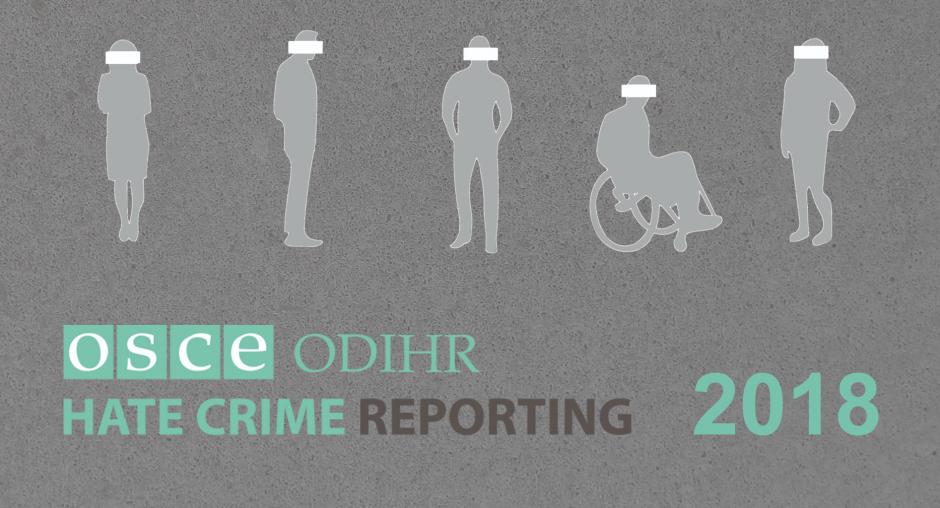
WARSAW, 15 November 2019 – Marking the International Day for Tolerance on 16 November with the publication of its annual hate crime dataset, the OSCE Office for Democratic Institutions and Human Rights (ODIHR) urges countries to implement hate crime legislation that has existed on their law books for many years.
“Legislation that remains without any practical application is of no more value than the paper it’s printed on,” said ODIHR Director Ingibjörg Sólrún Gísladóttir. “We must be clear that bias-motivated crime is not a phenomenon that affects minority communities only, but on the contrary is a direct attack on our democracies and the human rights principles on which they are based.”
While 53 out of the 57 countries that make up the OSCE region have laws prohibiting hate crime for a variety of bias motivations, far fewer apply these laws in practice. In particular, many countries do not have mechanisms for police to record hate crimes as a separate category, which means the bias motivation is lost sight of and is much less likely to appear in any final sentence handed down by a court.
In its hate crime reporting, ODIHR continually underlines the fact that the vast majority of bias-motivated crimes go unreported. Many victims do not go to the police because they doubt the authorities will take action, while others fear lengthy court cases and meetings with insensitive law enforcement or judiciary officials that exacerbate the trauma they have already suffered.
Much of ODIHR’s hate crime work therefore focuses directly on the needs of victims. At the same time, the Office works to counter bias-motivated crime by strengthening the role of criminal justice systems through toolkits and improving systems for monitoring and collecting data on hate crimes.
In recent years, there have been a number of improvements in combating hate crime in the OSCE region. In some countries, bias-motivated crimes have been added to national legislation and heavier sentences introduced. This is a vital step to make clear that hate crimes affect the security not only of individuals and their communities but society more widely, and ensuring perpetrators are aware their actions will not be treated with impunity.
ODIHR’s hate crime database is the largest of its kind worldwide. It is updated each year with information from both official and civil society sources and includes data on hate crime legislation, recording, prosecution and sentencing, as well as best practices from throughout the region. This year’s civil society data shows that more than 4,500 people were victims of physical violence or direct threats in 2018.
These and other findings were presented earlier this week at an annual meeting of official representatives from across the OSCE responsible for reporting hate crime data to ODIHR.
